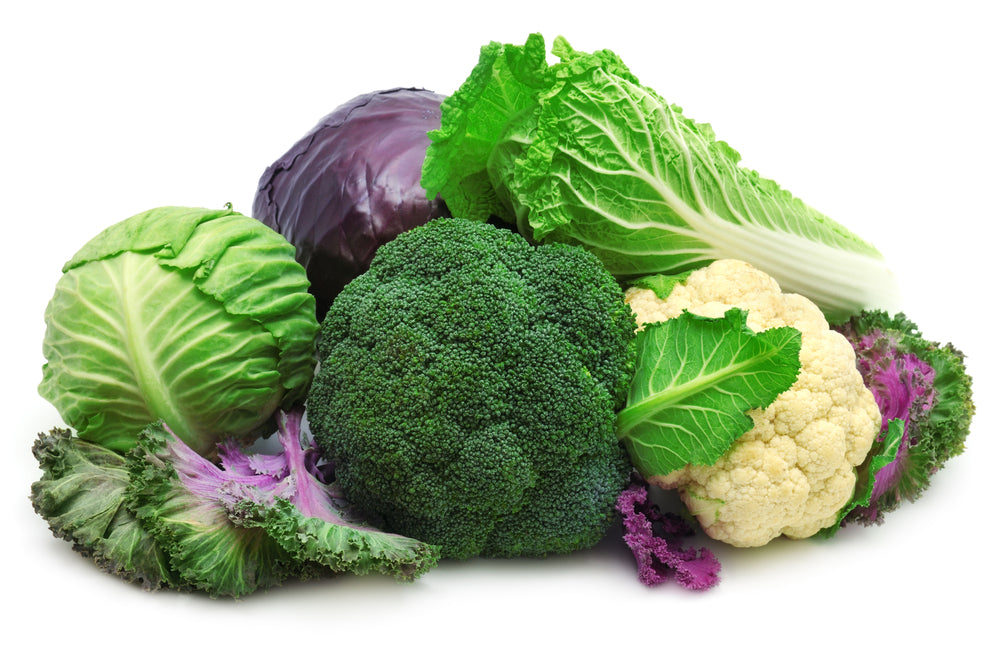The Power of Cruciferous Vegetables
Cabbage and broccoli are nutrient-dense cruciferous vegetables that are high in Vitamin C. They both play a significant role in maintaining good health, as Vitamin C is a powerful antioxidant that supports the immune system and helps combat oxidative stress. Consuming these vegetables as part of a balanced diet can also provide other essential nutrients, such as fiber, vitamins, and minerals.
A diet rich in Vitamin C foods like cabbage and broccoli can help reduce the risk of chronic diseases, including heart disease, certain cancers, and age-related macular degeneration.
Vitamin C Content in Cabbage and Broccoli
Cabbage is an excellent source of Vitamin C, with one cup of raw, chopped cabbage containing about 32.6 milligrams. On the other hand, one cup of chopped raw broccoli provides about 81.2 milligrams of Vitamin C. Both vegetables can help you meet your daily Vitamin C needs, which are 75 milligrams for women and 90 milligrams for men.
Incorporating these vegetables into your diet can be an effective way to increase your Vitamin C intake alongside other fruits high in Vitamin C, like oranges, grapefruits, and berries.
Health Benefits of Cabbage and Broccoli
The high Vitamin C content in cabbage and broccoli offers several health benefits, such as:
- Boosting the immune system
- Reducing inflammation
- Enhancing iron absorption
- Promoting collagen synthesis
- Protecting against oxidative stress and free radicals
These benefits contribute to a reduced risk of chronic diseases and improved overall health. Furthermore, the antioxidants in these vegetables help maintain a healthy heart and prevent cardiovascular disease.
Cabbage and broccoli also contain other essential nutrients, including fiber, potassium, Vitamin K, and Vitamin A. These nutrients support various bodily functions and contribute to a balanced diet. Including a variety of vegetables high in Vitamin C in your meals can help promote overall well-being.
Cooking Methods to Preserve Vitamin C
Vitamin C is sensitive to heat, light, and air. Therefore, cooking methods that minimize exposure to these elements can help preserve the Vitamin C content in cabbage and broccoli. Steaming and microwaving are considered the best cooking methods for retaining Vitamin C. Avoid boiling or overcooking, as this may lead to significant nutrient loss.
You can also enjoy cabbage and broccoli raw, in salads or smoothies, to get the most Vitamin C out of these vegetables.
Deerforia: Supporting Your Nutrient Needs

Deerforia is an ecommerce store specializing in Vitamin gummies and quercetin gummies, designed to complement a balanced diet and support your nutrient needs. Incorporating these supplements into your daily routine can help fill any gaps in your nutrition and promote optimal health.
It's essential to maintain a balanced diet that includes a variety of Vitamin C-rich foods, like cabbage, broccoli, fruits, and meat sources to meet your daily requirements. Consult a healthcare provider before starting any supplementation.
Frequently Asked Questions (FAQ)
What are the main health benefits of cabbage and broccoli?
Cabbage and broccoli are high in Vitamin C, which is essential for immune system function, collagen synthesis, and reducing inflammation. These vegetables also contain fiber, potassium, Vitamin K, and Vitamin A, which contribute to overall health and well-being.
How much Vitamin C is in cabbage and broccoli?
One cup of raw, chopped cabbage contains about 32.6 milligrams of Vitamin C, while one cup of chopped raw broccoli provides about 81.2 milligrams. Both vegetables can help you meet your daily Vitamin C needs, which are 75 milligrams for women and 90 milligrams for men.
How can I incorporate cabbage and broccoli into my diet?
You can enjoy cabbage and broccoli in various dishes, including salads, stir-fries, and soups. These vegetables can also be eaten raw or lightly cooked to preserve their Vitamin C content. Consider adding more fruits high in Vitamin C and other vegetables high in Vitamin C to your diet for variety and additional health benefits.
Are there any other sources of Vitamin C?
Yes, there are many other sources of Vitamin C, including citrus fruits like oranges and grapefruits, berries, peppers, and even meat sources like liver and fish. Aim to include a variety of Vitamin C-rich foods in your diet to support overall health.
Can I get enough Vitamin C from supplements?
Supplements like Deerforia's Vitamin gummies can help fill any gaps in your nutrition and support your Vitamin C needs. However, it's essential to maintain a balanced diet that includes a variety of Vitamin C-rich foods. Consult a healthcare provider before starting any supplementation.
In Conclusion
Cabbage and broccoli are high in Vitamin C, making them valuable additions to a healthy diet. Including these vegetables and other Vitamin C-rich foods in your meals can help support your immune system, reduce the risk of chronic diseases, and promote overall well-being.





